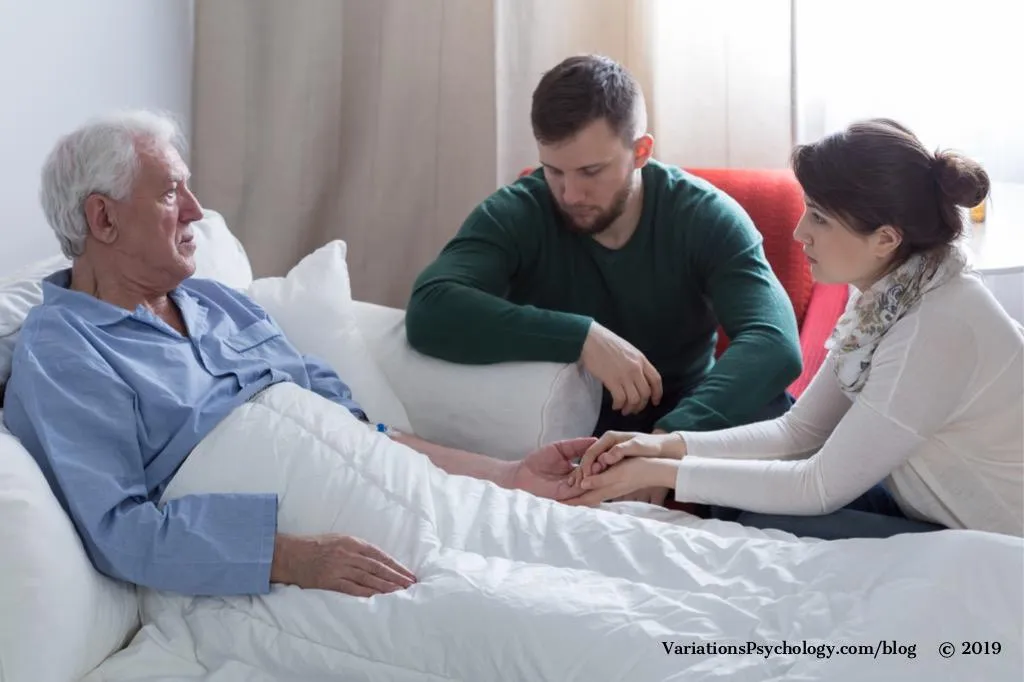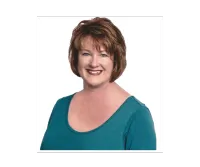Where to Begin When Caregiving Feels Like Too Much
You’re a Caregiver
(Even If No One Told You Yet)
Caregiving isn’t just hands-on support.
If you’re managing appointments, asking the doctor questions, coordinating help, paying bills, or even just lying awake at night worrying about what comes next, you’re caregiving even if you live far away. Even if you “just check in” over the phone. Even if you feel like you’re not doing enough.
Your presence, your voice, and your effort matter more than you know.
Here at The Aging Society, we help you step confidently into that role with tools, clarity, and the right words, so you can honor your loved one, protect your own well-being, and avoid the spiral of “what ifs.”
A Story That Might Feel Familiar
Emily sat in her car outside her mom’s house, hands still on the wheel, heart pounding.
Her mom had left the stove on again, this time with a dish towel too close to the flame. Nothing happened, but it shook her.
She knew things had to change. But when she brought it up over Sunday dinner, her brother rolled his eyes: “She’s fine.” Her sister changed the subject.
Now Emily was stuck in the middle, carrying her mom’s safety, her siblings’ denial, and her own fears.
What kind of care did her mom need? Could they afford it? And how could she convince her family without another fight?
If you’ve felt that weight, you’re not alone, and you don’t have to carry it by yourself anymore.
Start With Something Small:
One Small Shift
Start With Something Small: One Small Shift.
A simple daily email that makes caregiving feel lighter, starting today. Caring for an aging parent can feel like you’re juggling a hundred decisions at once, while still trying to keep the peace, protect your loved one’s dignity, and hold your own life together.
✅ A short story you’ll recognize from your own life
✅ One tool, script, or mindset shift that made life easier for another caregiver
✅ A small action you can take right now to make things lighter
It’s not theory, it’s what’s actually worked for hundreds of families. It’s short. It’s doable. And it’s the quickest way to start feeling less alone.
Everyone Carries Caregiving Differently
Some carry it all silently and never ask for help.
Some are tired of being the only one doing anything.
Some of us research everything before we make a move.
And some plan everything, then collapse when it all falls on them.
No matter how caregiving shows up in your life, there’s a place for you here.
You Are Here
Find The Path That Feels Right For You
For the Ones Who Need to Get It Right
Thoughtful tools for when the stakes feel high.
For the Ones Who Carry It All Quietly
Gentle support and scripts when only you notice.
For the Ones Who Are Tired of Doing It Alone
Real talk and relief when caregiving has become solo
For the Over-Responsible Ones
Practical systems and relief when burnout is looming.
Visit the Resource Center (All Access)
This isn’t just a collection of links. It’s a support system, designed to help you move forward with confidence, one decision at a time.
I was drowning in Google searches and family group texts going nowhere. The Aging Society helped me figure out not only what my mom needed, but how to get my siblings to listen. I wish I had found this sooner".
"Every other site overwhelmed me with too much information. This felt like someone walking beside me with calm, clarity, and a plan. The guides are gold, but the family tools? Life changing."
"This isn’t just a website. It’s a lifeline. From decision checklists to sibling support, it’s helped me feel less alone and more capable in every step of this journey.."
"I didn’t even realize I was a caregiver until I took the first quiz. Suddenly everything made sense, and I knew where to start. It was the first time I felt less alone in this whole process."
"Before finding this, I was drowning in group texts with my siblings and endless online searches. Now I have a plan, the right words to start conversations, and the confidence to take the next step."
"The tools here don’t just give you information—they make it feel doable. From the match guide to the family scripts, I finally feel like I can handle what’s ahead without losing myself in the process."
See Our Latest Blog Posts
Stay up to date with fresh insights and helpful tips in our latest blogs.
Whether you’re looking for guidance, real-life strategies, or just a little encouragement along the way,
our blog is here to give you practical support you can actually use.

Caregiver Guilt and Resentment: When Bedsores Run Deeper Than Skin
It started with a phone call.
“Dad has a pressure sore. They’re saying it’s bad. Down to the bone.”
Melissa felt her stomach lurch, not only from the gravity of the diagnosis but from what it signaled. She wasn’t the sibling who lived nearby. She wasn’t managing daily check-ins, doctor visits, or keeping track of bed turns and skin checks.
That job had quietly fallen to her older sister, who was now, unmistakably, exhausted, angry, and done being polite about it.
Melissa’s chest tightened with guilt. But along with it, another feeling crept in: resentment.
Why hadn’t anyone told her things were getting this bad? Why was she expected to jump in now and fix everything?
When Care Is Uneven, So Are the Emotions
A bedsore isn’t just a medical crisis; it’s often a flashpoint for everything a family hasn’t been saying.
Sometimes, it’s the moment where long-simmering tensions boil over. Accusations fly. Old patterns reemerge. The question isn’t just What happened to Dad? But who let this happen?
These wounds don’t form overnight. They creep in over time, when routines fray, when parents resist help, when caregiving becomes an unspoken sacrifice. But the emotional aftermath? That can be swift and brutal.
The hands-on caregiver feels abandoned. The distant sibling feels ambushed. Everyone feels defensive. Because deep down, most of us want to believe: I’m doing the best I can.
Guilt and Blame: Two Sides of the Same Wound
Guilt says, “I should have done more.”
Blame says, “You didn’t do enough.”
Often, both echo in the same room, loud and overlapping. The sibling doing the daily grind feels overlooked. Their labor invisible. The one on the outside feels judged, even if no one says a word.
This emotional tug-of-war breeds resentment. Words become weapons. Roles from childhood reappear. And instead of uniting around the loved one in need, the family fragments under the weight of hurt.
But the wound on your loved one’s body? It’s only part of the story.
The rest is about roles never discussed, expectations never voiced, and history never healed.
How Families Can Begin to Heal (While Still Handling the Crisis)
If you’re in the middle of this storm, breathe. You’re not broken. You’re human. And healing is possible.
Here are three small steps that can make a big difference:
Name what’s really going on. Be honest: “Dad has a serious wound, and it’s surfaced some painful feelings. We need to talk about both.”
Recognize the imbalance. Acknowledge the one doing most of the care—and the one who feels left out. Even different roles can carry equal emotional weight.
Ask for teamwork, not blame. Instead of “Why didn’t you…,” try “What can we do now, together?”
When Bedsores Run Deeper Than Skin
This isn’t just about a medical diagnosis. It’s about how care reshapes families, reveals fractures, and—if handled with grace—can even lead to deeper understanding.
But sometimes, families can’t talk through the hurt alone. That’s okay. Sometimes, You Need a Referee Not Just a Plan
That’s where I come in.
My Family Strategy Calls offer a neutral, expert-led space to sort through the emotions, the logistics, and the plan. We help families move from blame to blueprint.
➡️ Schedule a Family Strategy Call
One Last Thing…
If you were the one who noticed the wound, made the call, or raised the alarm, you did the brave thing.
If you’re just now finding out and feel a mix of shock, shame, or sadness, you’re still part of the healing.
Families aren’t perfect. But they can heal. And sometimes, it starts with a single honest conversation.
© 2025 The Aging Society. All rights reserved.
For families navigating senior care, find clarity, compassionate support, and trusted resources for senior care.
It all starts with One Small Shift.
